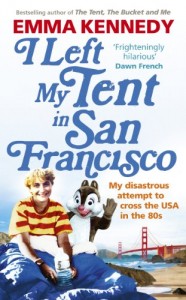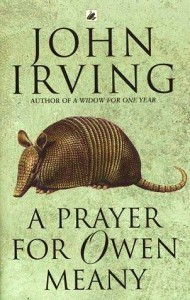Phew. Done. Now, perhaps I can stop humming that bl**dy song every waking hour.
Well.
Go Tell it on the Mountain was picked as this month’s read for our bookclub by the simple expedient of pointing randomly into the shelves at Krambua* which are furnished with second-hand books. Not a bad result, really, it could probably have been much, much worse (I wasn’t at that meeting, so I don’t know what else is on those shelves, but I’ll check next time).
It’s James Baldwin’s first novel, and a good read. The quotes on my copy says he knows the Harlem language, which I have no reason to doubt. It’s almost always easier to point out what I don’t like about a book than what I do, so excuse me if this is a bit lopsided, but here goes: For one thing, I had a hard time keeping apart the events happening in Harlem and the events happening in «the south». The first setting is immensly urban, the second, as far as I can tell, is supposed to be rural. The pictures in my head, though, were mostly a sort of mix-up with a bit of spagetti western clap-board towns thrown in for good measure. The latter I take full responsibility for, but I feel Baldwin has to shoulder some of the blame for not making the settings distinct enough. Though it could be argued that he was doing it on purpose to show that nothing really changes and you can take the boy out of x, but never the x out of the boy or something. That would not sit well with the blurb on my copy claiming Baldwin deals with the old generation versus the new generation and the change in values, however Balwin can’t be blamed for the blurb, and I think the blurb-writer was a bit off in any case, it seems to me the old generation and the new have a lot in common and it’s down to individuals to make change. So there is that. The second quarrel I had is that I felt the novel ended somewhat prematurely. Perhaps I just didn’t understand it, but, well, I sort of wanted a bit MORE to happen. Like some of this change, which is in the air the whole way through, but which doesn’t really materialise.
Still and all, I gave it four out of five stars on Goodreads.
And I’m ticking off all sorts of things: A new to me author makes it the first book in my Boktolva, and surely, surely it can be called a classic? Well, it’s a 1001 book, so I call it a classic. And I guess I’m a bit early for black history month, but it seems a fitting read to celebrate the second inauguration of Barack Hussein Obama (who I have great hopes for now that he doesn’t need to worry about reelection).

